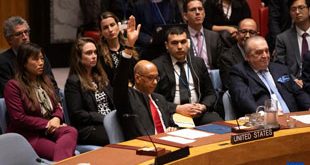
New Delhi, India | Xinhua | India’s experts have urged better regulation of drug manufacturing process in the South Asian country after the World Health Organization (WHO) issued an alert earlier this month over four Indian-made cough syrups, which it said could be linked to acute kidney injuries and 66 deaths among children in The Gambia.
The flagging has brought into the limelight the menace of counterfeit drugs in India and calls for the regulation of the drug manufacturing process in the country.
The involved four cough syrups were manufactured by the pharmaceutical firm Maiden Pharmaceuticals Limited based in India’s northern Haryana state. Immediately after the WHO warning over the four Indian cough syrups sold overseas, India’s federal government launched a probe. Laboratory analysis has found the cough syrups to be contaminated with diethylene glycol and ethylene glycol, and India’s drug regulatory authority the Central Drugs Standard Control Organization (CDSCO) has confirmed the exports were limited to The Gambia.
India is one of the leading manufacturers and exporters of affordable medicines to low- and middle-income countries. The CDSCO has been benchmarked as maturity level 3 for vaccines. However, the regulation of medicines falls under the state governments.
Experts say the absence of a centralized body to oversee the drug manufacturing process may result in certain cases of inconsistent regulatory control over pharmaceutical manufacturing activities leading to the production of substandard medicines, which may include medicines contaminated with toxic substances.
“India has been battling the challenge of substandard drugs for a while,” Gajendra Singh, a public health expert, wrote in an opinion piece in a local daily.
“The government must tighten its noose on quality and ensure that patient safety takes precedence over geography for medicines. The idea is to give patients the safest option available, whether it comes from the domestic market or overseas,” said the expert.
According to Singh, in 2018 the CDSCO identified about 4.5 percent of all generic drugs in the Indian market as substandard.
“Additionally, just one-fourth of the 12,000 manufacturing units in India have been found to comply with the WHO’s good manufacturing practices, the mandatory quality regulations that drug makers must adhere to. Not just locally, India’s reputation in the global pharmaceutical market is at stake,” Singh said.
“The Drugs Controller General of India should work closely with local drug control authorities and pharmaceutical companies to get to the root of the problem. A joint effort is needed so that well-defined protocols are followed to help combat the crisis of counterfeit drugs and ensure the safety of patients,” said the expert.
 The Independent Uganda: You get the Truth we Pay the Price
The Independent Uganda: You get the Truth we Pay the Price


